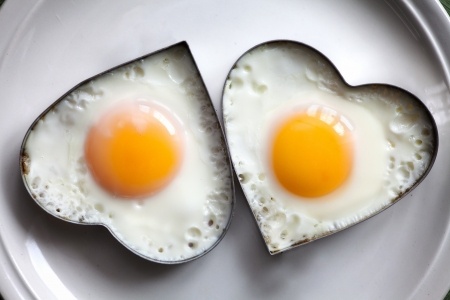
There is very little evidence that high cholesterol causes heart disease. There is also little evidence that cholesterol lowering drugs, known as statins, decrease the absolute risk of heart disease. However, the pharmaceutical industry has colored its studies to show the opposite. In fact, statin drugs are neurotoxic (brain and nerve damaging), myotoxic (muscle damaging), and hepatotoxic (liver damaging). The heart is mostly muscle and depends on a nerve network to function properly. So statin drugs are toxic to both the heart muscle and the nerves that regulate it.
Statin drugs do lower cholesterol, but cholesterol is not harmful, so why do we need to lower it? Statin drugs are harmful to the heart, so why are these drugs being prescribed? It doesn’t make any sense.
The pharmaceutical companies want you to believe that high cholesterol causes atherosclerosis. When an atherosclerotic artery is dissected, examiners find that the plaques contain cholesterol, good fats (omega 3s), and bad fats (saturated) So why is it recommended to avoid cholesterol, but not good fats. The truth is neither one causes atherosclerosis. What happens is that inflammation and free radicals damage artery walls forming small tears. Cholesterol fats are allowed to get into the wall to form a plaque, which “plugs” the leak.. The plaque is like a scar, which reduces elasticity, which decreases the ability of the artery to accommodate blood pressure, which stresses the heart.
The best way to prevent cardiovascular disease is to to avoid fried foods and substances that inflame the blood vessels. A better marker for cardiovascular risk is homocysteine. Homocysteine is a protein produced by the liver. It inflames and damages blood vessels. It is easy to reduce homocysteine in the blood. . Simply eat plenty of cruciferous vegetables, which are high in folic acid, which neutralizes homocysteine. Avoid monosodium glutamate (MSG) and artificial sweeteners, as these can increase homocysteine levels.
If you are not convinced and are still concerned about your cholesterol levels and want to keep them low just to be safe there are natural alternatives to lower your levels. You can eat 3/4 cup (dry measure) oats 5 days a week. You can take 15 grams of fiber from psyllium husk or flax seed per day. . You can take red yeast rice. These are great ways to reduce cholesterol, with additional health benefits, such as lowering colon cancer risk, modulating blood sugar levels, and relieving constipation. I prefer these natural alternatives to the drugs that damage the liver, nervous system and heart.


